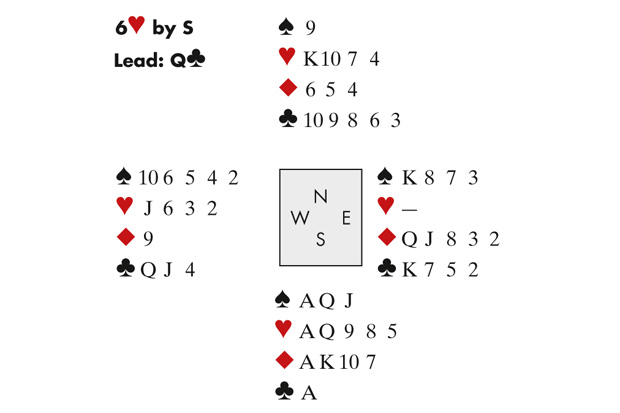Bridge players are a superstitious bunch. And I don’t just mean the steps they take to prepare for matches — the lucky socks, the special pens, the insistence on sitting North or South. No, even once the game has begun, many rely on strange sayings and beliefs to help them decide how to play. Different countries have different superstitions. In Russia, for instance, it is said that if ever you’re in doubt about what to lead, a diamond is best. In India, the mantra goes that the queen and nine of a suit are always in the same hand. In Norway, if you want to locate a queen, the golden rule is to assume the defender with the longest nose has it.
Perhaps the most famous superstition of all is the Rabbi’s Rule, which originated in America, though no one seems sure with which Rabbi. This states that the king of clubs is always singleton and offside. At last year’s European Champions Cup, Pierre Zimmerman, playing for Monaco, put the Rule to superb effect on this deal:
North led the ♦5 to the jack, queen and king. Zimmerman paused to think. South had not raised spades so it was unlikely he held four. North, presumably holding six, had made a simple overcall rather than a weak jump, suggesting he had a reasonable hand. Moreover, if South held the ♣K that would give him 5 points and with three-card spade support he might have raised to 2♠. Zimmerman made up his mind: he continued with the ♠Q, which held, then ruffed a diamond and played the ♣Q (just in case), putting up the ♣A and felling North’s ♣K. With a silent nod to the Rabbi, he drew the last trump, cashed the ♦A, and when the ♦10 didn’t fall had to hope North had precisely ♥AQ — bingo!






Comments